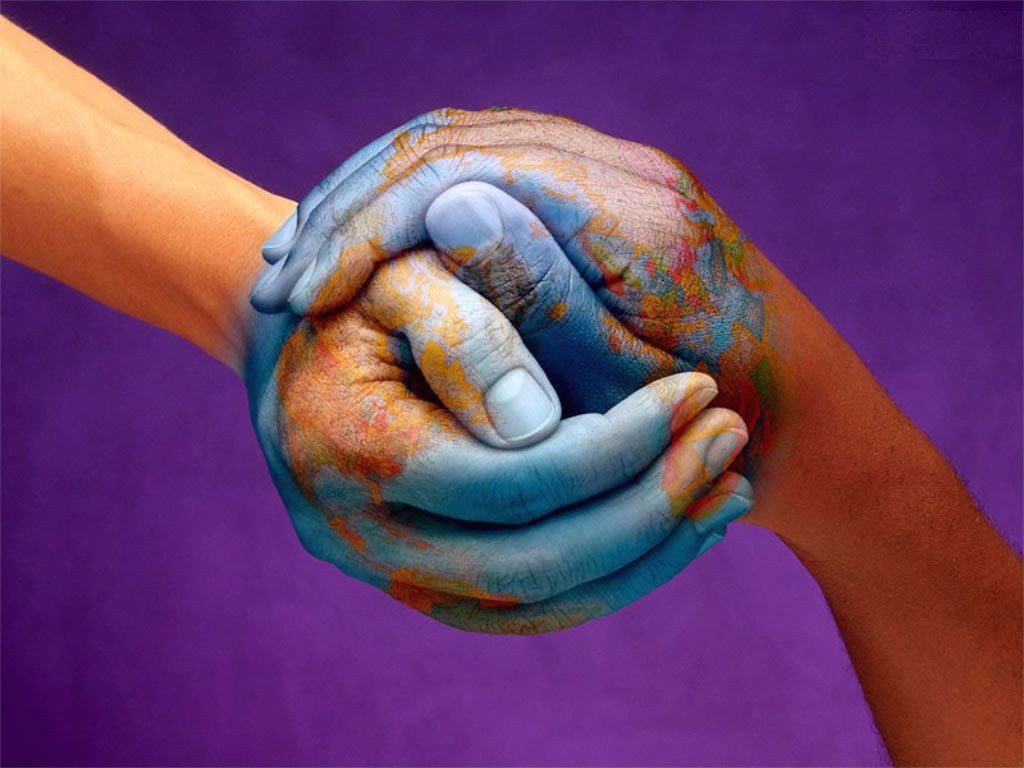The very fast and effective means of travel and communication have turned the world into a global village. They have helped man in conquering time and space; nations of the world have come much closer to one another as a result of these wonderful achievements. Now the people of the world feel far more close to one another than in the past, however, separated by vast distances. These scientific and technological developments have almost revolutionised the life.
Let us have a look at what kind of global village it is. What similarities and dissimilarities does this new and technological global village have with a real village? In a village there are glaring inequalities. There are big, rich and powerful landlords on the one hand and the poor, helpless marginal farmers and labourers on the other. These have-nots are always at the mercy of these influential and rich landlords. The latter exploit the former as they will. At the world level also there exist extreme inequalities and disparities. The relationship between various nations of this so-called global village is marked with glaring economical, social and industrial inequalities and exploitation.
The Third World nations, comprising the majority of the world’s population, are underdeveloped and backward. In many of these countries there still exist autocratic, authoritarian regimes, fundamentalist dictatorships, feudal systems, and endless and appalling-poverty. The majority of the people in these countries do not have even basic amenities of life. These helpless people are never sure of the next dais’s food, let alone other basic amenities like shelter, clothing, medicine and educations. They are so occupied with the struggle for survival that for them the concept of the world as global village has no meaning.
ADVERTISEMENTS:
Till recently most of these countries were slaves. They were ruled over by foreign colonial and imperialistic nations. The attainment of political freedom does not by any means indicate economic freedom and financial independence. Thus, the concept of one world or the world as a global village is quite inconceivable with existing extensive poverty and extreme inequalities.
There is little or no sense of talking of a one united world when the Third World Countries, comprising the three fourths of the world’s population have been denied access to equal global opportunities. The glaring and alarming disparity between the richest so percent and the poorest so per cent of the world’s population, is too much to think of the world into a global village. This disparity has increased rapidly over the years. The poor are unable to meet their basic need while the rich people belonging to the First and Second World nations are rolling in wealth and luxury. They are virtually consuming four- fifths of humanity’s natural capital and resources without being obliged to pay for them.
There is a need of a change of fundamental nature before we can speak of a truly one global and peaceful village. Tense disparities between developed, developing and underdeveloped countries should be reduced considerably. The rich and developed nations should be stopped from exploiting the poor ones. In developed countries millions and millions of dollars are spent on such trivial as video games, maintenance of lawns and pets. This is just a tip of the iceberg. The percentage of world income spent by these countries in wasteful luxuries, comforts etc., and is really shocking. This kind of distorted expenditure patterns in rich and developed countries are very unfortunate. In poor countries people do not possess even the means to make their both ends meet. They are deprived of basic needs like access to clean potable water, primary health care, shelter, education, clothing etc. Unless the rich nations share their wealth and resources with the nations of the Third World, there cannot be a real global village or united One World.
ADVERTISEMENTS:
Even in industrialized countries, there exist vast disparities between the rich and the poor. And their inequalities have been rising fast in these years. For example, in Britain the top 10 percent of the people have cornered a 50 percent share of the nation’s marketable wealth. The top 20 percent of people have 51 percent of the original income. And in the last couple of years the number of the people living below the poverty line has increased.
Unless these inequalities are minimized and the living standard of the impoverished and economically exploited Third World people is significantly improved, the concept of the world as a global village would remain only a dream. The affluent nations should bring an immediate change in their priorities. These countries should seriously rethink about reducing poverty by sharing their wealth with other countries. They should reduce substantially their defense expenditure and stop conducting nuclear and missile tests.

